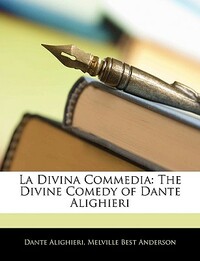Take a photo of a barcode or cover
302 reviews for:
La Divina Commedia: The Divine Comedy of Dante Alighieri
Melville Best Anderson, Dante Alighieri
302 reviews for:
La Divina Commedia: The Divine Comedy of Dante Alighieri
Melville Best Anderson, Dante Alighieri
challenging
dark
reflective
slow-paced
Plot or Character Driven:
Plot
Strong character development:
No
Loveable characters:
No
Diverse cast of characters:
No
Flaws of characters a main focus:
Yes
Very interesting to me, and a very different vibe to 'Inferno', which was voyeuristic punishment after punishment, whereas this had some hope and some more self-contained development just within the canticle, so I would honestly say if you're going to read one part of 'The Divine Comedy', this one might be the best choice!
Once again, really enjoyed the precise symmetry and symbolic numerology of the Cantos and the structure of Mount Purgatory, and the passage of time in relation to the spheres (is it just me or is the geocentric system of orbits and planets of Dante's time even more convoluted than the mysterious mess that is the universe as we currently know it???). Also lots of allegorical choice of colour which was interesting once I was familiar with it and could pick up on the symbolism.
If I'm being honest, Dante's Christian ideology was sometimes so ridiculous and hyperbolic that it made me laugh and I couldn't take any of it seriously, especially once Virgil was replaced by Beatrice (a sad moment as Virgil had grown on me, whereas Beatrice and Dante have some weird parental dynamics). We were taken into Eden surprisingly early in 'Purgatorio', and I actually learnt a lot about the structure of earthly paradise relative to eternal paradise according to medieval doctrine. Speaking of Eden, it was ridiculous! There's literally a river to make you forget your sins! And another to enhance your memory of good deeds! The taste is repeatedly described as "sweet" and likened to an addictive drug! If you ask me, Dante the Pilgrim's ego did NOT need further inflation... But more generally, these rivers really rubbed me the wrong way because it seems like such a superficial and false way to "purify" the souls, and made me suspicious of all the sunshine and rainbows (very literally) of the terrestrial paradise.
The fact that Dante never finished/didn't have access to the full text of 'The Odyssey' consolidates itself as a sort of running joke by this point in the 'Comedy'. So many exciting nuggets of classical reference, and even moreso the way in which Dante warped them to suit his message. I interpreted 'Purgatorio' as less of a political slant than 'Inferno', and more focused on questions of morality, God, philosophy, especially love vs. free will which kept coming up. This made it slightly more accessible to me because I was familiar with more of the general Old Testament references than the intricate political conflict of Dante's contemporaries and all the corrupt popes with similar names.
Mark Musa's translation was pretty good (can't speak for accuracy or how nice the language is compared to others) and I really appreciated the endnotes because he referenced lots of other translators and their interpretations of passages, as well as the links to other key texts and linking stuff to other moments in the 'Comedy'. I will say I didn't always agree with Musa, and found some of his conclusions a bit far-fetched, and sometimes he mentions that he changed a word from the original and I didn't see a good reason why, especially as the translation is blank verse. Couldn't find Musa's translation of 'Paradiso' so I got the Mandelbaum one instead, which I've read mixed things about, but at least that one is a dual edition so I can actually look at the Italian if I want (which I couldn't for this one). Just hope his endnotes are as good as Musa's because this really is hopeless to read without notes.
Did I agree with the ideology of this book? Not even a tiny little bit. But it was so juicy, so interesting to me, and all the elements of the symmetrical construction of it still blows my mind and I have to give credit to Dante for that while also strongly disagreeing with him on many points. Like with 'Inferno', not a rating of moral value but of how much it got into my head and yes, this really made me think.
Once again, really enjoyed the precise symmetry and symbolic numerology of the Cantos and the structure of Mount Purgatory, and the passage of time in relation to the spheres (is it just me or is the geocentric system of orbits and planets of Dante's time even more convoluted than the mysterious mess that is the universe as we currently know it???). Also lots of allegorical choice of colour which was interesting once I was familiar with it and could pick up on the symbolism.
If I'm being honest, Dante's Christian ideology was sometimes so ridiculous and hyperbolic that it made me laugh and I couldn't take any of it seriously, especially once Virgil was replaced by Beatrice (a sad moment as Virgil had grown on me, whereas Beatrice and Dante have some weird parental dynamics). We were taken into Eden surprisingly early in 'Purgatorio', and I actually learnt a lot about the structure of earthly paradise relative to eternal paradise according to medieval doctrine. Speaking of Eden, it was ridiculous! There's literally a river to make you forget your sins! And another to enhance your memory of good deeds! The taste is repeatedly described as "sweet" and likened to an addictive drug! If you ask me, Dante the Pilgrim's ego did NOT need further inflation... But more generally, these rivers really rubbed me the wrong way because it seems like such a superficial and false way to "purify" the souls, and made me suspicious of all the sunshine and rainbows (very literally) of the terrestrial paradise.
The fact that Dante never finished/didn't have access to the full text of 'The Odyssey' consolidates itself as a sort of running joke by this point in the 'Comedy'. So many exciting nuggets of classical reference, and even moreso the way in which Dante warped them to suit his message. I interpreted 'Purgatorio' as less of a political slant than 'Inferno', and more focused on questions of morality, God, philosophy, especially love vs. free will which kept coming up. This made it slightly more accessible to me because I was familiar with more of the general Old Testament references than the intricate political conflict of Dante's contemporaries and all the corrupt popes with similar names.
Mark Musa's translation was pretty good (can't speak for accuracy or how nice the language is compared to others) and I really appreciated the endnotes because he referenced lots of other translators and their interpretations of passages, as well as the links to other key texts and linking stuff to other moments in the 'Comedy'. I will say I didn't always agree with Musa, and found some of his conclusions a bit far-fetched, and sometimes he mentions that he changed a word from the original and I didn't see a good reason why, especially as the translation is blank verse. Couldn't find Musa's translation of 'Paradiso' so I got the Mandelbaum one instead, which I've read mixed things about, but at least that one is a dual edition so I can actually look at the Italian if I want (which I couldn't for this one). Just hope his endnotes are as good as Musa's because this really is hopeless to read without notes.
Did I agree with the ideology of this book? Not even a tiny little bit. But it was so juicy, so interesting to me, and all the elements of the symmetrical construction of it still blows my mind and I have to give credit to Dante for that while also strongly disagreeing with him on many points. Like with 'Inferno', not a rating of moral value but of how much it got into my head and yes, this really made me think.
It proved more engaging than Dante's Inferno, delving into the intricacies of the seven deadly sins as Dante ascends Mount Purgatory to shed the marks of sin, emphasizing the rejection of determinism in favor of advocating for human free will. Yet, the most poignant aspect for me was the melancholic departure of Dante's guide, Virgil, who fades away, leaving room for Beatrice to take over without Dante getting the chance to bid a proper farewell. This shift adds an emotional layer to the narrative as it sets the stage for the final installment, Paradiso.
informative
mysterious
reflective
medium-paced
I'm sure everyone has their opinions on Dante and The Divine Comedy and I now so humbly offer up my own.
Much like Dante writes in The Paradiso that it was impossible to describe the indescribable sights and revelation of heaven, so it is as a reviewer trying to do so with The Divine Comedy. I will say that reading all three canticles together as one is quite possibly one of the greatest journeys a person can undergo.
As far as the translation is concerned, John Ciardi is the authority when it comes to The Divine Comedy. I was lucky enough to study Dante while studying abroad in Italy and my professor there expressed to me, fervently, that Mr. Ciardi gave the English-speaking world the best translation available. I quite enjoy the format Mr. Ciardi presents with each canto for his readers. The concise summary preceding each canto allows the reader to know what is about to happen so that the tercets and the language of Dante aren’t so daunting. Then, after the canto, Mr. Ciardi gives very detailed line notes for the canto. This, I feel, is the closet a reader can come to being present in one of Mr. Ciardi's classes on Dante at Rutgers University.
Dante e meglio e' il meglio e Dante.
Much like Dante writes in The Paradiso that it was impossible to describe the indescribable sights and revelation of heaven, so it is as a reviewer trying to do so with The Divine Comedy. I will say that reading all three canticles together as one is quite possibly one of the greatest journeys a person can undergo.
As far as the translation is concerned, John Ciardi is the authority when it comes to The Divine Comedy. I was lucky enough to study Dante while studying abroad in Italy and my professor there expressed to me, fervently, that Mr. Ciardi gave the English-speaking world the best translation available. I quite enjoy the format Mr. Ciardi presents with each canto for his readers. The concise summary preceding each canto allows the reader to know what is about to happen so that the tercets and the language of Dante aren’t so daunting. Then, after the canto, Mr. Ciardi gives very detailed line notes for the canto. This, I feel, is the closet a reader can come to being present in one of Mr. Ciardi's classes on Dante at Rutgers University.
Dante e meglio e' il meglio e Dante.
adventurous
funny
mysterious
reflective
fast-paced
Plot or Character Driven:
A mix
Strong character development:
Yes
Loveable characters:
Yes
Diverse cast of characters:
Yes
Flaws of characters a main focus:
Complicated
It's a lot more philosophical than Inferno. I liked it for different reasons, but this text is what takes Dante's universe to a whole new level compared to just his more widely known layout of Hell
I appreciate the ease of Durling’s modern translation to understand, but I’m more and more grateful to have read it at the same time as Longfellow’s because there is so much poetry lost here.
Mission Accomplished.
Review of Dante’s third cantiche: Honestly, I kind of miss the petty bitch that we had in Inferno and Purgatorio … the one who gave out eternal damnation to his enemies and sent glimpses of glory to come. Now that we arrive at the glory, it’s a whole lot more boring. But as I got further into Paradiso, I was able to appreciate the philosophy more so it ended on a much more even note than it started. Although it also just ENDS. We have a grand crescendo and no come down, which is definitely memorable, but somehow feels unfinished for as grand as the project was.
Review of the Durling/Martinez translation: Once again, I’m grateful for a modern translation that strips some of the poetic flair away in order to lay bare the text. The critical analysis of the footnotes and additional essays is phenomenal and fascinating to read, and manages to (mostly) steer clear of academia jargon. Very easy to read, if not to carry this 880 page behemoth.
Review of Dante’s third cantiche: Honestly, I kind of miss the petty bitch that we had in Inferno and Purgatorio … the one who gave out eternal damnation to his enemies and sent glimpses of glory to come. Now that we arrive at the glory, it’s a whole lot more boring. But as I got further into Paradiso, I was able to appreciate the philosophy more so it ended on a much more even note than it started. Although it also just ENDS. We have a grand crescendo and no come down, which is definitely memorable, but somehow feels unfinished for as grand as the project was.
Review of the Durling/Martinez translation: Once again, I’m grateful for a modern translation that strips some of the poetic flair away in order to lay bare the text. The critical analysis of the footnotes and additional essays is phenomenal and fascinating to read, and manages to (mostly) steer clear of academia jargon. Very easy to read, if not to carry this 880 page behemoth.
adventurous
challenging
emotional
hopeful
slow-paced
Plot or Character Driven:
Plot
Strong character development:
Yes
Loveable characters:
Complicated
Diverse cast of characters:
Yes
Flaws of characters a main focus:
Yes
Durling's side-by-side translation and text of English and Italian presents the Purgatorio to great effect. This version was recommended by my Italian professor teaching Dante's writing, and it's a really wonderful copy. The end notes for each Canto are very detailed and really useful in understanding the nuances and historical context for each one.
Dante continues his pilgrimage through Purgatory, experiencing the penances which lead to forgiveness (in parallel to the situations in the Inferno) but with the addition of hope to the sinners presented. While this is less familiar to a general audience, there are still foundational pieces of our beliefs included in this text - it's less well known than the Inferno, but still well worth the read. The writing is equally as complex and beautifully crafted, and leaves a great impact.
Dante continues his pilgrimage through Purgatory, experiencing the penances which lead to forgiveness (in parallel to the situations in the Inferno) but with the addition of hope to the sinners presented. While this is less familiar to a general audience, there are still foundational pieces of our beliefs included in this text - it's less well known than the Inferno, but still well worth the read. The writing is equally as complex and beautifully crafted, and leaves a great impact.






